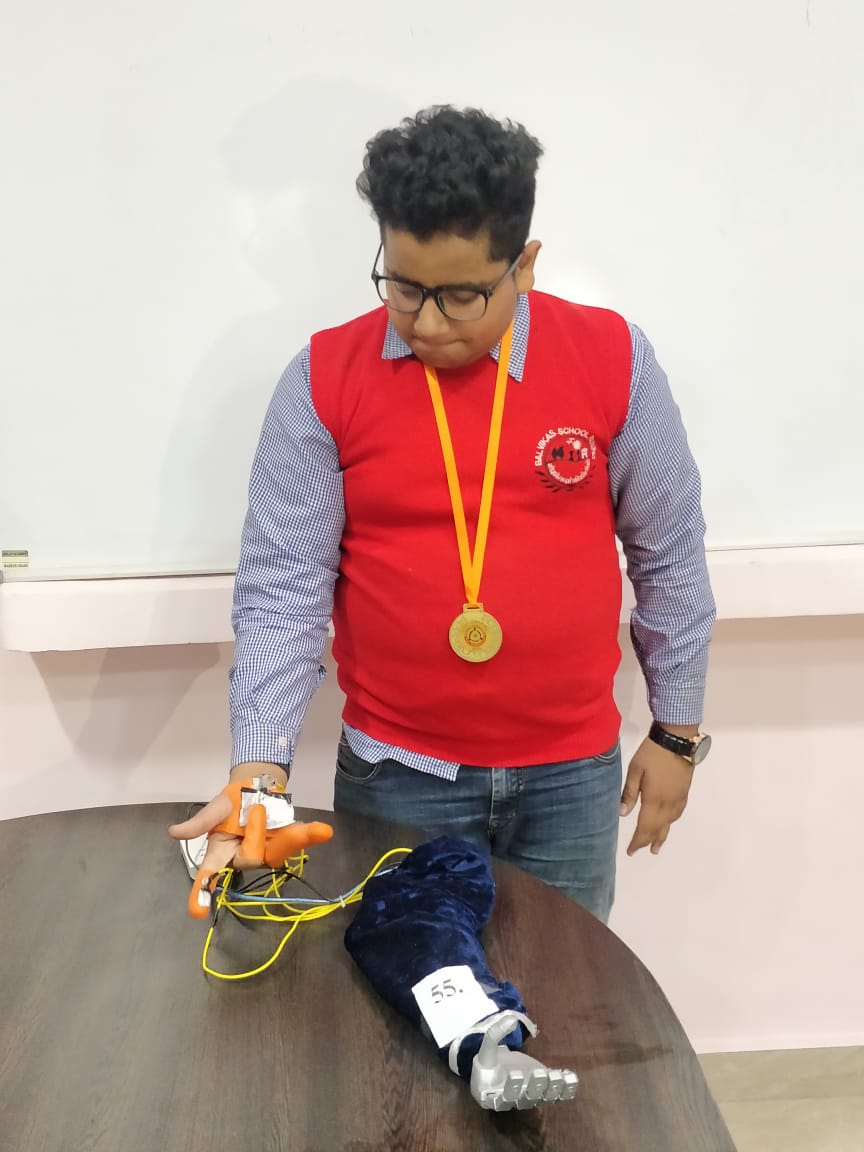
( National Innovation Foundation - India )
By : Anmol Wadhera,
Panipat,
Haryana
Innovation Description
Profile
Anmol Wadhera is a student of Bal Vikas School, Haryana. He considers his father as his biggest inspiration. His hobbies include making science-related models, debate contests and indulging in poetry.
Purpose
Anmol thought of this innovative idea while observing the pain of physically disabled people and their daily struggle with life that tremendously impacts them physically and emotionally. Through this device, each finger can be controlled separately.
Technical Details
It contains a myoelectric and a muscle sensor. At present, it can be used for single/semi amputated persons, but it can be modified to cater to the needs of people with complete amputation too. He wants to make this technology affordable for use to the ones who need it the most.
Benefit
Amputated / Semi amputated persons can live their lives with ease by use of this invention.
Suggested Reading(s):
Dalef, H. H., Aziz, F. A., Hasan, W. Z. W.,
& Ariffin, M. K. A. M. (2018). Development of wireless controlling and
monitoring system for robotic hand using Zigbee protocol. Journal of Computational and Theoretical Nanoscience, 15(2), 656-662.
Dhepekar, P., & Adhav, Y. G. (2016).
Wireless robotic hand for remote operations using flex sensor. In 2016 International Conference on Automatic Control and Dynamic
Optimization Techniques (ICACDOT) (pp. 114-118). IEEE.
Karam, Z. A., Al-Kadhimi, A. M., & Saeed,
E. A. (2018). Design and implementation of a wireless robotic human hand
motion-controlled using arduino. In 2018 International Conference on Advanced Science and
Engineering (ICOASE) (pp. 518-523). IEEE.
Salman, F., Cui, Y., Imran, Z., Liu, F.,
Wang, L., & Wu, W. (2020). A wireless-controlled 3D printed robotic hand
motion system with flex force sensors. Sensors and Actuators A: Physical, 309, 112004.
For More Details Please Contact on enquiry[at]nifindia[dot]org